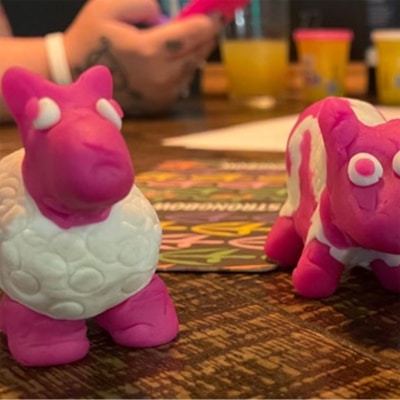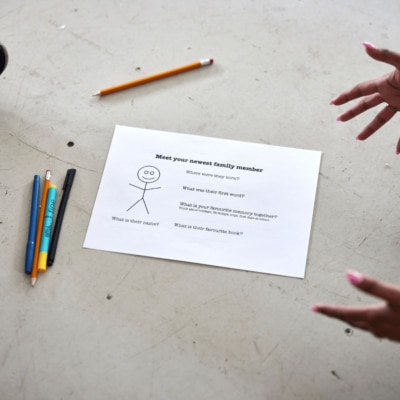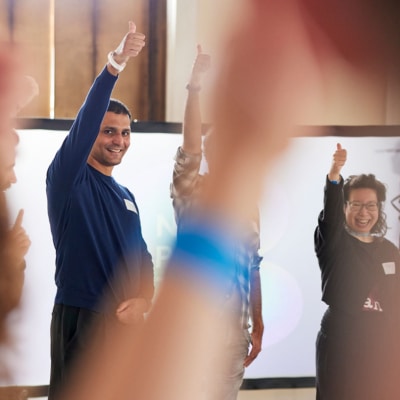From climate anxiety to climate agency
Posted on October 16th, 2023
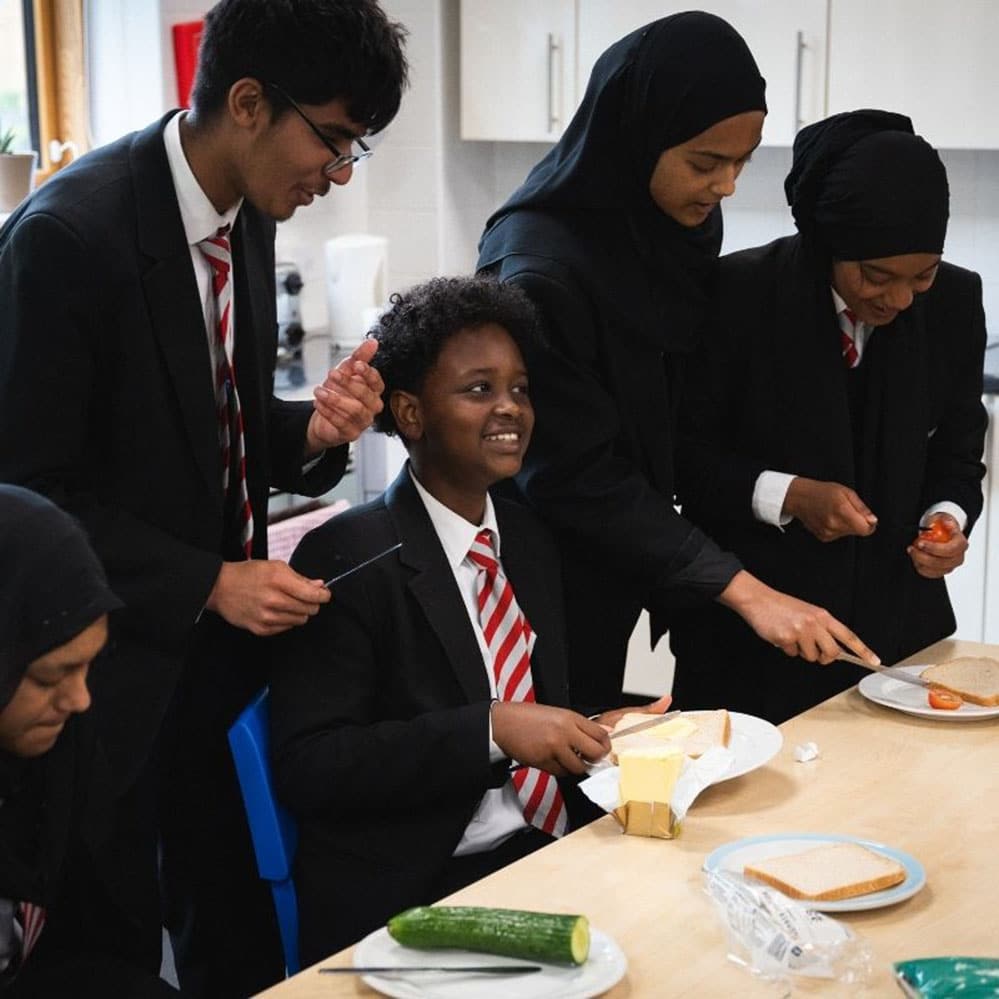
“I realise that I, as an individual, have the power to make change and I should be actively supporting and improving the world around me”
First off, what is Playful Activism?
Coney’s participatory work is rooted in Playful Activism. This is a specific type of creative activism that uses play as a tool for exploring social change. If activism is the use of direct and noticeable action to achieve a political or social result, Playful Activism infuses this action with play and creativity. It aims to spark change through play.
I’ve been exploring Playful Activism at Coney since we were asked by Greenpeace in 2018 to work on Codename: Violet – a playful intervention by a group of junior junior doctors (from the Young Coneys) at a Car Industry Gala Dinner as part of Greenpeace’s Ditch Diesel campaign. We made that playful intervention over 3 weeks, and the impact of the action has had a profound effect on the way I think about activism. Supporting young people to speak to power in their own language has been at the core of how we make work with the Young Coneys ever since, as well as using games & play as tools for both exploring social change and enacting it.
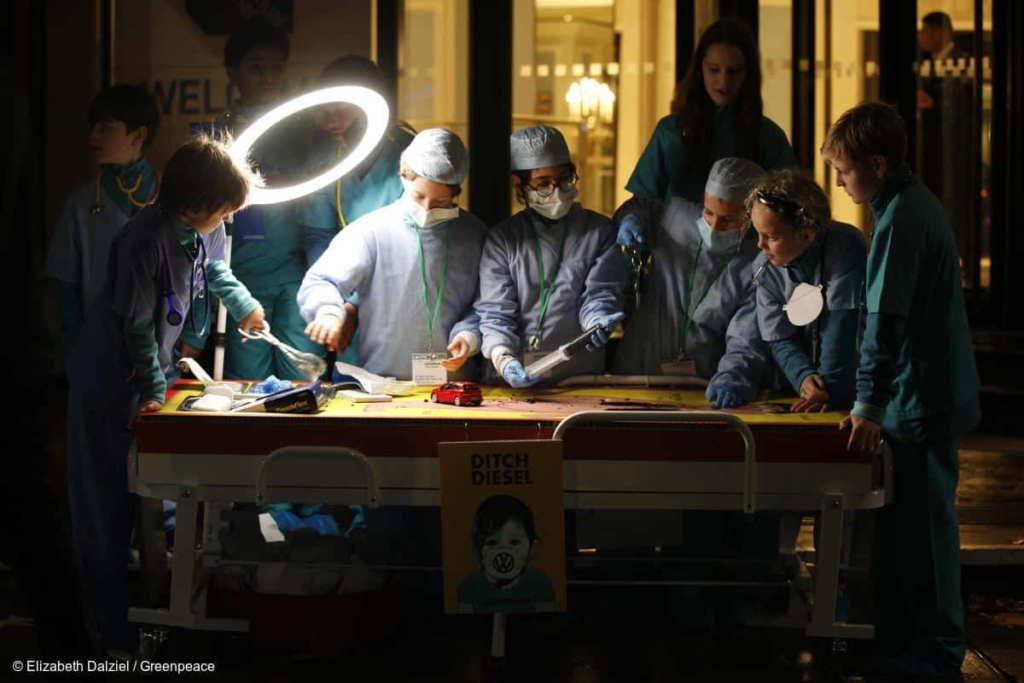
For this new project with Greenpeace, The Climate Agency Box, we have taken learning from Codename: Violet and our Barbican Box collaboration, and rooted it in climate justice and action. The project thus far has been a huge undertaking. How do you take a mammoth topic like the climate crisis and package it up into a fun, honest and engaging programme that can inspire young people to move through climate anxiety to climate agency?
What happens?
A range of playful tools help facilitate the programme, including an escape-room style box to break open, coupled with an online ‘character’ that co-leads the project before an artist arrives to work with the students in-person. Here’s an overview of how the programme is constructed.
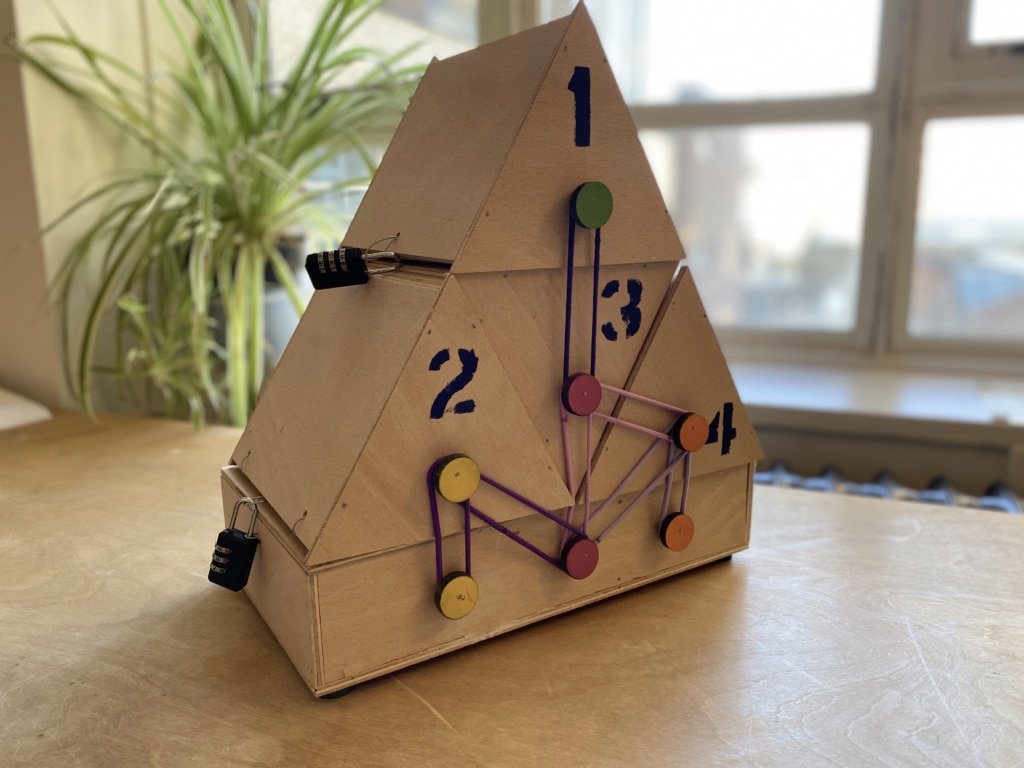
Session 1: The game of the climate crisis
The group is introduced to the project, though playing a game that explores the Extraction Economy, followed by a discussion on how playing this game connects to the climate crisis. The groups also creates their operation codename for a piece of Playful Climate Activism (Young Coneys projects have a ‘front’ name that is always something we all have in common in the room).
Session 2: Landing with the context
The group begins to explore the context of the climate crisis through Mya-Rose Craig’s video What’s racism got to do with environmental destruction? . The group is also introduced to game mechanics and how we can modify the system of a game.
Session 3: Choosing a focus
In this session, the group chooses the path they want to take in their climate action by reflecting on their own skills and interests. By looking at global activists, and how the action they are taking globally links back to Tower Hamlets, the group can choose a focus for their action moving forward.
Session 4: Understanding power
The group explores the types of power that exists in their school, and the power the group has both as individuals and collectively. The group map the systems of power in their school, imagining what success could look like there, and exploring the impact of privilege on how comfortable we are (or aren’t) with activism.
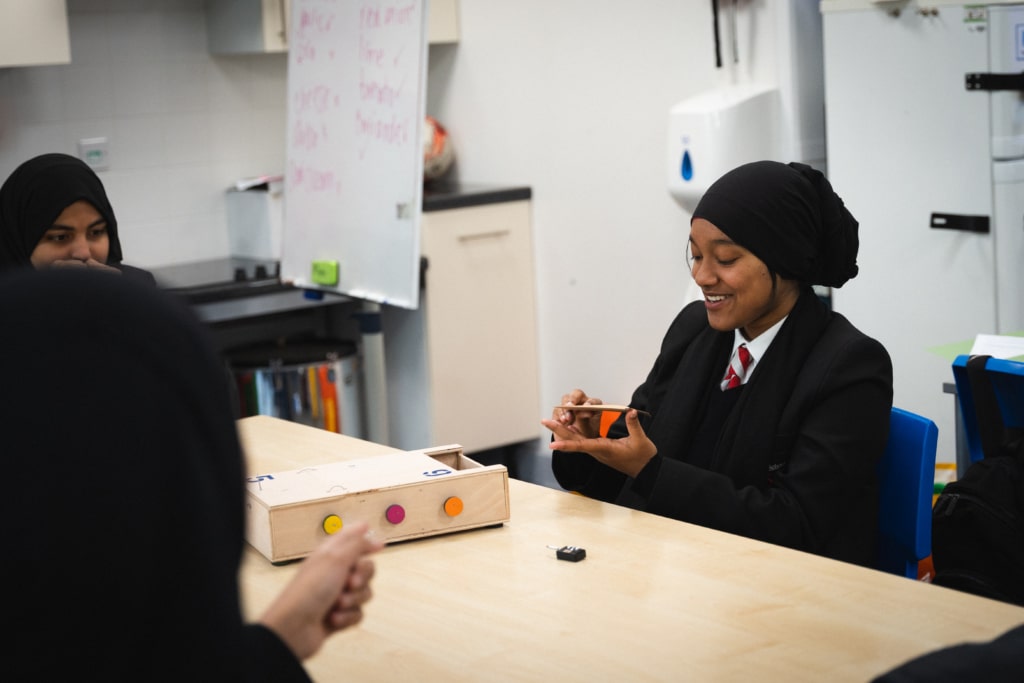
Session 5: Plotting a playful action
The group works with a visiting artist to define the ‘ask’ of their action – what they want the impact to be – before exploring who they should reach with a ‘gift’ if they want to have a positive impact on this school system. In Coney terms, a ‘gift’ is something that is freely given with generous impact to a recipient; something that starts a conversation with them in an accessible way. The gift is important for the impact of an experience.
Session 6: Making a playful action
In this session the group works with the artist & teacher to make their playful action, building in line with their level of comfort in action and with their own creative skills.
Session 7: Delivery
The playful action is delivered in the school, with a focus on playfully starting a conversation with power to affect change.
Session 8: The power of a gift
In the final session, the box reveals a final gift for the group, who then craft the story of their action to be shared with others.
What happened in the first part of the pilot?
We’ve now delivered the first part of the pilot in Swanlea Secondary School in Tower Hamlets and I’m so excited about what happened in this first delivery. Playful Activism is all about sparking change through play and that’s exactly what we did. The class chose plastic pollution over five other focuses, after looking at global activists and who they could connect to in Tower Hamlets. We mapped the school system, where power sat and discussed how we could modify that system. In our group we had a number of young people whose superpower was sandwich making, and our conversation was on plastic food packaging – so we made the action from their superpowers…
…we made a sandwich.
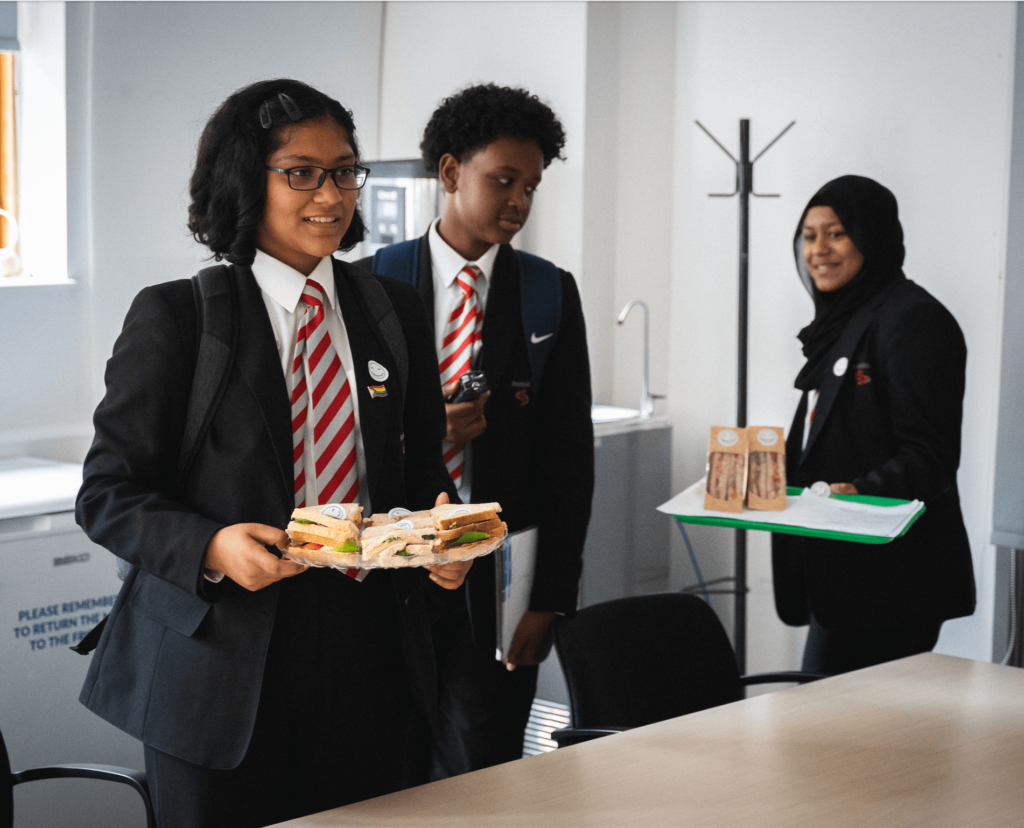
The students then had a conversation with power (in this case, the school’s deputy head) about the change they wanted to see in their school system. We created a ‘gift’ to reach that person and start a conversation around the ‘ask’. This brings us to the sandwich – we went undercover and found out our target’s favourite – salmon with cream cheese & dill – and delivered it to the deputy head in a private meeting room with a magic phone call* from the students sharing the change they wanted to see and how he could act.
And he did. He made a phone call to Vegware (who supply the packaging to the school) to discuss composting proposals and how they could do it at their school. We showed him the potential impacts of that phone call…
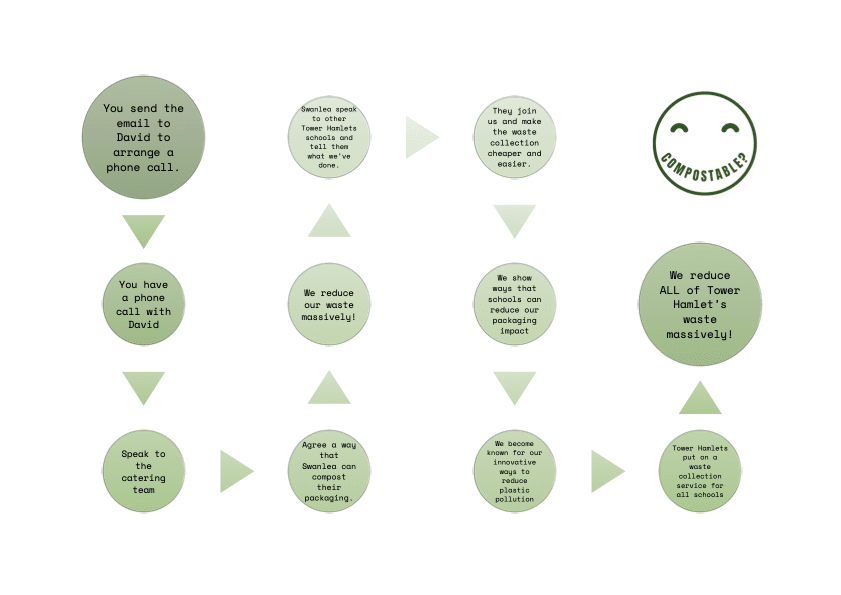 One gift to power, to spark change through play!
One gift to power, to spark change through play!
*You can hear the phone call by texting the word SANDWICH to 07400179362.
Back to all posts

